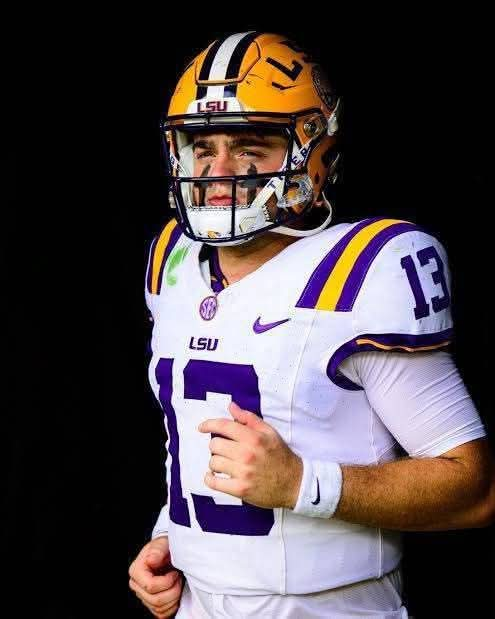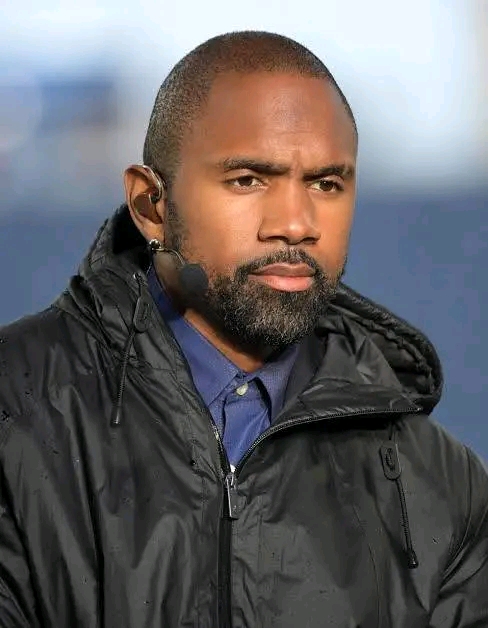Loyalty over Lucrative Lure: LSU Quarterback Garrett Nussmeier Rejects $4.5 Million NIL Offer from Alabama, Choosing to Remain True to Purple and Gold – An Unprecedented Display of Collegiate Loyalty, Challenging the Shifting Landscape of College Athletics and NIL Deals – Analyzing the Implications of Nussmeier’s Decision and the Future of College Football…
Loyalty over Lucrative Lure: Garrett Nussmeier’s Bold Stand and Its Ripple Effect on College Football
In a college football era increasingly defined by Name, Image, and Likeness (NIL) deals and high-dollar transfers, LSU quarterback Garrett Nussmeier made a decision that defies the prevailing current. Turning down a reported $4.5 million NIL offer from Alabama, Nussmeier chose instead to remain loyal to the LSU Tigers—the program that recruited and developed him. His decision reverberates beyond Baton Rouge, marking a rare moment where loyalty outweighed financial gain and challenging the direction college athletics seems to be heading.
Nussmeier’s choice is significant not only for its monetary magnitude but for what it represents. In today’s collegiate landscape, athletes are increasingly mobile, and NIL deals have made it easier for programs to attract talent with financial incentives. The transfer portal, once a tool for opportunity, has become a revolving door of athletes seeking the best deal. Against this backdrop, Nussmeier’s decision stands out as a statement of values—prioritizing team, tradition, and personal growth over a potentially richer bank account.
At LSU, Nussmeier has patiently waited his turn behind stars like Joe Burrow and Jayden Daniels, showing flashes of brilliance along the way. His commitment to LSU is not just symbolic—it’s strategic. By staying, he steps into a starting role in a system tailored to his skill set, with the full support of a coaching staff that believes in his long-term potential. He also solidifies his status as a leader, a fan favorite, and a cornerstone of the Tigers’ future, both on the field and in the locker room.
The implications of his choice are multifaceted. For LSU, it boosts morale and strengthens their recruiting narrative: Baton Rouge isn’t just a stepping stone—it’s a destination. For other athletes, it may signal a shift in how value is measured. While NIL opportunities are undoubtedly transformative, Nussmeier’s stance suggests that culture, continuity, and legacy still matter. This is especially relevant for programs aiming to build cohesive rosters amidst the chaos of free agency-style player movement.
On a broader scale, Nussmeier’s rejection of Alabama’s overture raises questions about the sustainability and ethics of NIL deals. Is it healthy for college football when players are essentially bid upon? Are we eroding the meaning of team and loyalty in the pursuit of profit? While NIL rights are essential and long overdue, Nussmeier’s choice is a reminder that players are more than assets—they are individuals with principles, aspirations, and attachments.
In the end, Garrett Nussmeier may have walked away from millions, but he gained something arguably more powerful: respect. In choosing LSU over the lure of a massive payday, he redefined what it means to be a college athlete in 2025. His decision may not reverse the tide, but it provides a powerful counter-narrative—one that says character, loyalty, and belief in the process still have a place in college football. And for the Tigers, it’s not just a win in the locker room—it’s a win for the soul of the sport.


